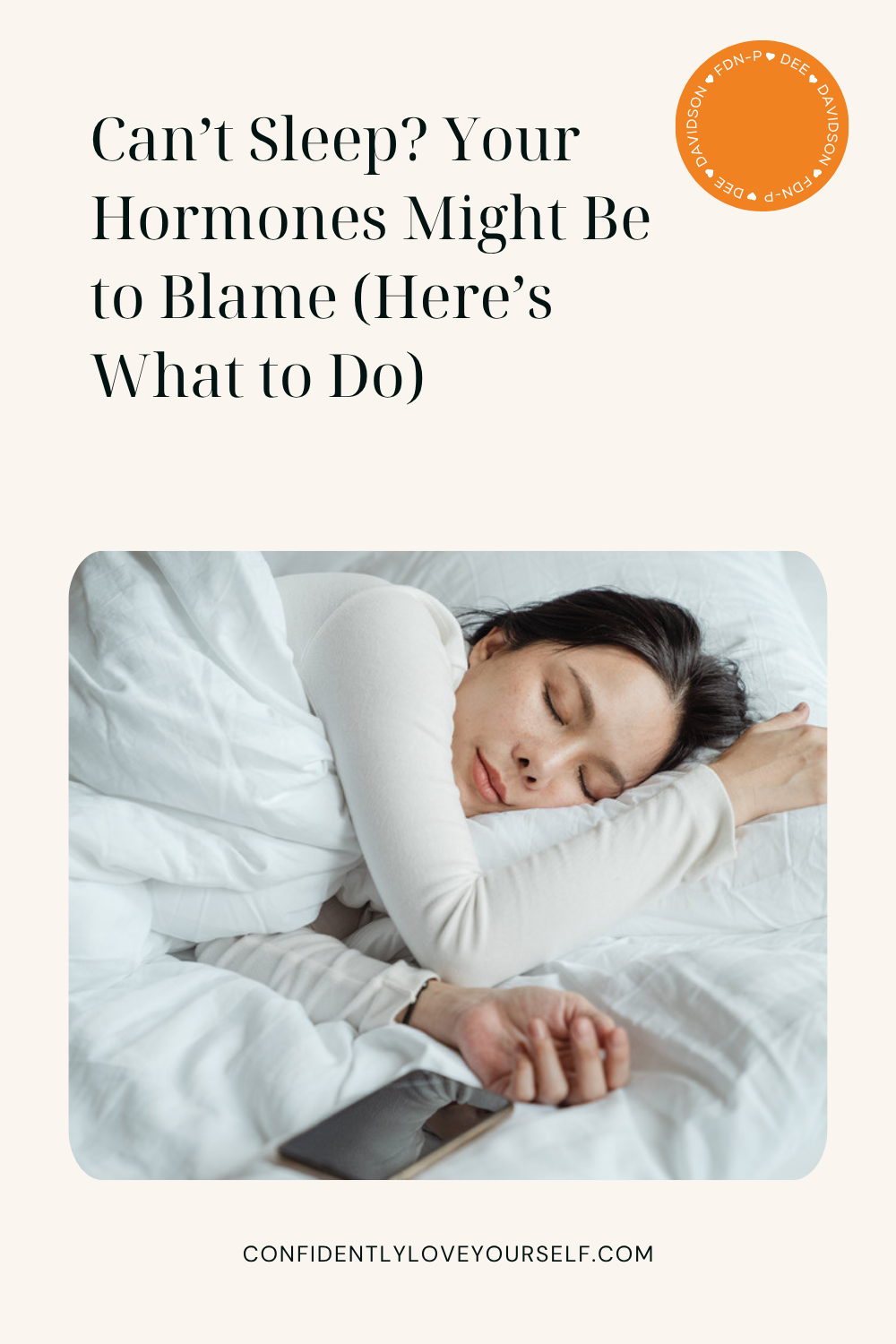Can’t Sleep? Your Hormones Might Be to Blame (Here’s What to Do)
By Dee Davidson, Board-Certified Functional Health Practitioner
Do you find yourself tired but wired at night, waking up between 2–4 AM, or unable to stay asleep even when you’re exhausted?
Before you blame stress or a bad mattress, you might want to take a closer look at your hormones—because they play a huge role in your sleep quality.
As a Board-Certified Functional Health Practitioner in North Attleboro, MA, I see it all the time: women doing “all the right things” yet still battling poor sleep. And more often than not, hormone imbalance is the missing piece.
Let’s break down how your hormones affect your sleep, and why the DUTCH hormone test might be the best tool to help you fix it.
The Key Hormones That Impact Sleep
Here are a few of the main hormones at play in your sleep-wake cycle—and what happens when they’re out of balance:
1. Cortisol (Your Stress Hormone)
Cortisol helps wake you up in the morning and should naturally taper off at night.
But if your levels are too high at bedtime (often due to stress or inflammation), you may feel anxious, restless, or have a hard time falling asleep.
If cortisol crashes in the middle of the night, it can cause you to wake up suddenly—often with racing thoughts or low blood sugar.
Red flag: Waking up at 2–3 AM and unable to fall back asleep? This might be a cortisol crash.
2. Melatonin (Your Sleep Hormone)
Melatonin is naturally released in response to darkness.
Low levels may lead to difficulty falling asleep or light, restless sleep.
Melatonin production can be disrupted by:
High cortisol
Blue light exposure
Nutrient deficiencies
3. Progesterone (The Calming Hormone)
Progesterone promotes relaxation, reduces anxiety, and supports deep sleep.
Low progesterone (common in women in their 30s, 40s, or after coming off birth control) can lead to insomnia, night sweats, or a restless mind at bedtime.
Progesterone also declines in perimenopause—leading many women to struggle with new sleep issues in their 40s.
4. Estrogen
Estrogen supports serotonin and melatonin production, helps regulate body temperature, and keeps sleep cycles smooth.
Too much or too little can disrupt sleep, especially if you're also dealing with PMS, night sweats, or mood swings.
5. Blood Sugar + Insulin
Not a hormone we think of for sleep—but if blood sugar crashes overnight, cortisol will spike to compensate. That’s why eating too little, skipping meals, or too much sugar can all sabotage your sleep.
Should You Test Your Hormones?
If you're dealing with:
Trouble falling or staying asleep
Afternoon crashes or wired energy at night
PMS, fatigue, anxiety, or brain fog…
It’s time to stop guessing and start testing.
A DUTCH Test Can Help You Finally Sleep Again
The DUTCH Complete is the gold standard in functional hormone testing. It gives us insight into:
Estrogen, progesterone, testosterone
Cortisol & DHEA (your stress/adrenal hormones)
Melatonin
How you’re metabolizing hormones (aka detox capacity)
Key nutrient and neurotransmitter markers
And unlike blood work, it captures your full hormonal rhythm over 24 hours—so we can connect the dots between your symptoms, cycles, and sleep.
💛 What Happens After Testing?
When you book with me, we don’t just hand you results—we build a custom wellness plan around what your body actually needs.
That might include:
Foundational support for blood sugar, gut health, and adrenals
Nervous system regulation and sleep hygiene
Nutrient support to rebuild hormonal pathways
Lifestyle shifts aligned with your unique hormone map
Ready to Sleep Better?
Don’t spend another night tossing, turning, or guessing.
✨ Book a session or DUTCH Test Review with Dee Davidson
👉 Schedule Here
📲 Connect on Instagram for daily tips
🌿 Learn more about functional lab testing
Dee Davidson is a Board-Certified Functional Health Practitioner based in North Attleboro, MA, specializing in hormone balance, mineral restoration, gut health, and women’s wellness. She helps women ditch surface-level solutions and address the real root causes of fatigue, hormonal chaos, and burnout—so they can finally feel like themselves again.

